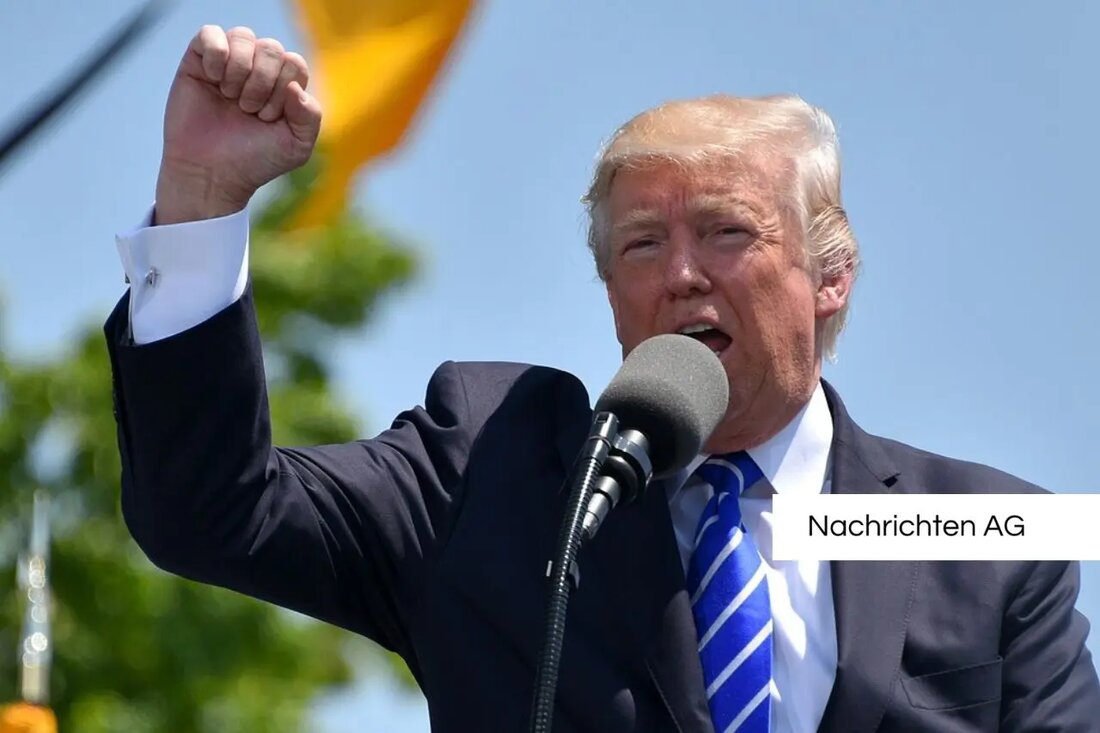Dispute over tariffs: Trump threatens Canada with harsh trade measures!
Dispute over tariffs: Trump threatens Canada with harsh trade measures!
The trade conflict between Canada and the USA initially took a turn after the Canadian province of Ontario announced that it will expose a 25 percent surcharge to power exports to various US states. This happened after a heated exchange between US President Donald Trump and Ontarios Premier Doug Ford. Trump, who had criticized the high tariffs on steel and aluminum imports from Canada, was outraged in his reaction and threatened to increase the overall tariff to 50 percent.
In a conversation with Minister of Commerce Howard Lutnick, Ford tried to defuse the conflict. The two politicians plan to meet a meeting in Washington on March 13 to discuss the Usmca Free Trade Agreement. It is expected that the customs duties announced on February 4th and on Wednesday will continue to exist from 25 percent on steel and 10 percent on aluminum compared to Canada.
reactions and threats
Trump made it clear that he sees the customs increases as an important instrument of his trade policy. He relies on the Trade Expansion Act from 1962 and the International Emergency Power Act from 1977 to justify the measures. According to Trump, excessive imports endanger the national security of the United States, an argument that was also used to underpin the tariffs against China.
The spokeswoman for the White House confirmed that no additional tariffs are introduced against Canada as long as the situation stabilizes. This is a response to Ontarios willingness to suspend the surcharge of electricity exports to Michigan, New York and Minnesota. However, the tension in the trade relationships is still high, especially since the tariffs already announced for steel and aluminum should come into force.
The international trade landscape
The increase in tariffs are not only limited to Canada, but are part of a more comprehensive trade policy of the Trump administration, which also includes China. The trade conflict with China, which has been going on since 2018, aims to modify China's state capitalist economic and industrial policy and to reduce the commercial balance deficit. Trump's tariffs of around $ 370 billion on imports from China have a similar logic: they should protect national security and defend economic interests in the USA.
The EU had reacted to Trump's previously introduced tariffs by imposing its own tariffs to US products. In this sense, the EU could promptly react to the new tariffs of the US administration to protect its economic interests. This complexity of international trade law shows that the customs increases are not arbitrary and can be exposed to legal challenges.
Overall, developments in the US Canada trade conflict and the associated customs increase also throw shadows on the future trade relationships of the United States, both in regional and global context. The confrontation between the nations leads to uncertainties that not only have political but also economic implications.
For the actors in these trade relationships, the scope for action remains in view of the urgent national and international challenges. Both Canada and the United States have to carefully consider how they act in an increasingly complex trade environment without causing deeper damage to their economic foundations.
Radio Ennepe Ruhr reported that ontario and the USA have reached an agreement, while lto covers the background to the trade conflicts and the legal framework that is based on these customs increases. The comprehensive connection between the great economic actors is also discussed by Wirtschaftsdienst , in which long-term effects on the trade relationships between the USA and China and the global trading market be illuminated.
| Details | |
|---|---|
| Quellen | |


Kommentare (0)